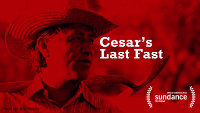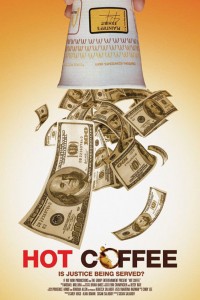
by Cory Woodroof | Oct 6, 2014 | News Slider
To co-curator Ted Parks, Lipscomb’s documentary screening series HumanDocs means far more than an earned chapel credit. Now, students who attend an installment of the series, typically nestled in a time-friendly slot on a Wednesday night, do earn a credit, but like most chapel opportunities, the impact goes far beyond the met requirement. The HumanDocs film screening series aims to teach its attendees about issues facing our world through the art of the documentary, which fits right in with the genesis of the documentary form. “My sense is that documentary has always been a form that has had an alternative distribution to commercial film,” Parks said, “and it’s always, from what I know about it, been used to raise consciousness about issues.” Parks says that at the beginning of the documentary, filmmakers were more able to pursue the issues and topics that they were passionate about because of the leniency of not working within the confines of commercial requirements. “Documentary filmmakers are not in it to make a buck,” Parks said. “They’re in it because they want to tell a story that they think will impact the world, and I really like that part of documentary film in contrast with commercial filmmaking.” Parks, an associate professor, said that HumanDocs was born out of his Hispanic Cinema class. He would have students volunteer at the Nashville Film Festival as part of the course, which got Parks wondering if Lipscomb could forge a more formal bond with the festival. “I wanted to try to develop a closer relationship between Lipscomb and the Nashville Film Festival, so talking to my colleague and...

by Whitney Jarreld | Dec 6, 2011 | News Slider
This semester, the HumanDocs series has shed new light on the human struggle. The fight for peace in Liberia. The fight against negative portrayals of women in the media. And now the fight over a steaming cup of coffee? On Nov. 30, students gathered to watch “Hot Coffee,” a documentary about seemingly frivolous lawsuits. The film takes its title from the case of Stella Liebeck v. McDonald’s, where an elderly woman sued the fast food giant for giving her a cup of coffee that was so hot it burned her. The case was widely dismissed by the media as ridiculous, even being mocked by David Letterman and on the popular show “Seinfeld.” But this documentary explored Liebeck’s side of the story – the effect the lawsuit had on her family, the harsh treatment from the media and what really happened when she spilled that cup of coffee. As soon as Lieback’s injuries from the spill were shown, the audience began to question just how frivolous her lawsuit was. And the documentary didn’t stop there. Using the McDonald’s case as a springboard, the filmmakers told two other stories highlighting the issues with tort reform. The case of Colin Gourley focused on medical malpractice. As a result of a doctor’s negligence, Colin Gourley was born with cerebral palsy; his twin brother Connor was not. Though a Nebraska jury awarded the family more than $5 million to cover the cost of expenses, a state-mandated cap limited the funds to $1.2 million. Former Mississippi judge Oliver Diaz told the filmmakers how inside deals within the court system had failed the Gourley family. The system...




